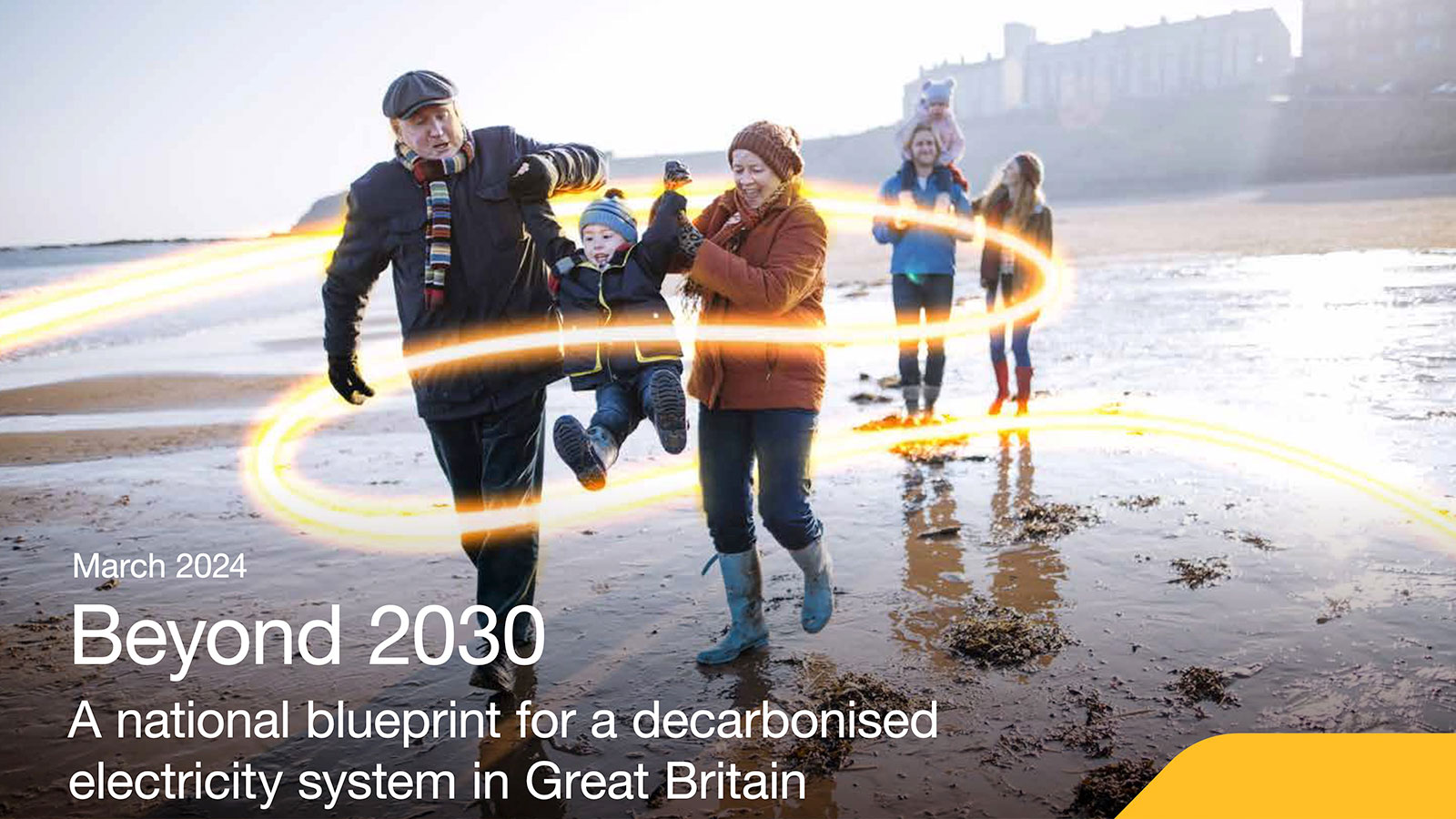Peter Ridge, Associate Director at Cundall, discusses the ‘Beyond 2030’ blueprint by the Electricity System Operator, and how it could help the UK achieve its net zero ambitions.
As nations globally intensify their efforts to combat climate change, the United Kingdom stands committed to achieving net-zero carbon emissions by 2050. Paramount to these goals is an electrified future, necessitating a decarbonised energy system.
The Electricity System Operator (ESO) recently published ‘Beyond 2030 – a national blueprint for a decarbonised electricity system in Great Britain,’ a critical document that builds upon the pathway to 2030 and is the next step towards achieving our objectives. But what are the implications from a design and planning perspective that come from this new document?
Future energy demand predictions are becoming more accurate, with ESO’s Future Energy Scenarios being updated annually.
As part of those predictions, significant efforts are being made to plan for an adequate supply of renewable energy sources. Projects like ScotWind are leading the expansion of offshore renewable energy, a field in which the UK is already a global leader.
However, integrating these green power sources into the national electricity grid presents substantial challenges. The existing grid infrastructure, largely designed for a different era of energy generation, requires comprehensive upgrades to handle the variable and decentralised nature of renewable energy effectively.
One of the most important areas of focus is the adaptability and resilience of the power grid. The grid must evolve as we move away from traditional energy sources, such as oil and gas, towards renewable sources, such as wind and solar. This evolution will require expanding physical infrastructure and integrating advanced smart grid technologies to improve the monitoring and management of energy flow.
Getting the public on-board
It’s not a case of just building the infrastructure, however. It is also crucial to address the public resistance faced by local renewable projects, despite the widespread support for green energy in principle.
It’s no secret that the practical implementation of many of these projects often meets opposition from local communities, but to tackle this issue, the ‘Beyond 2030’ plan introduces a Strategic Spatial Energy Plan to streamline the development of necessary infrastructure throughout the UK.
This plan will provide a clear framework for developing infrastructure and its locations, ensuring that investments are efficient and equitable across all regions. It will balance national needs with local concerns. Strategic community engagement and transparent planning processes are essential to integrate infrastructure developments into local environments harmoniously. Therefore, for the plan to succeed, it is crucial to prioritise them.
Dealing with the industry’s skills shortage
With a plan in place to address local concerns, the energy industry urgently needs skilled professionals who can drive its transformation.
Drawing from early career insights shared by a mentor who once told me, “there are only a handful of people who truly understand how the grid works, and they all have grey hair” – a comment from nearly 20 years ago – it’s clear that developing the necessary skills to design (and deliver) what could be considered the modern equivalent of the original super grid is essential. We must make careers in renewable energy appealing and competitive and inspire future generations about their potential impact on energy systems.
If the UK is to achieve net zero carbon, then first and foremost, the infrastructure that will power this move needs to be in place. While the investments in the national grid lay the foundation for a resilient, low-carbon infrastructure, the success of the ‘Beyond 2030’ plan hinges on collaboration across all sectors of society. From Government bodies and industry stakeholders to local communities, a unified approach is crucial.
As we forge ahead, continuous innovation, regulatory reform, and community engagement will be key to realising our ambitious vision for a sustainable energy future in the UK. Although it’s a good step in the right direction, urgent action is required to accelerate our progress towards our targets.


